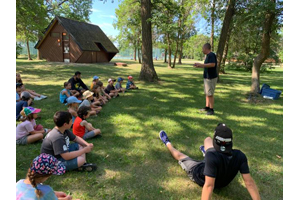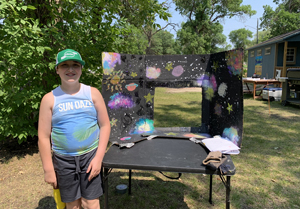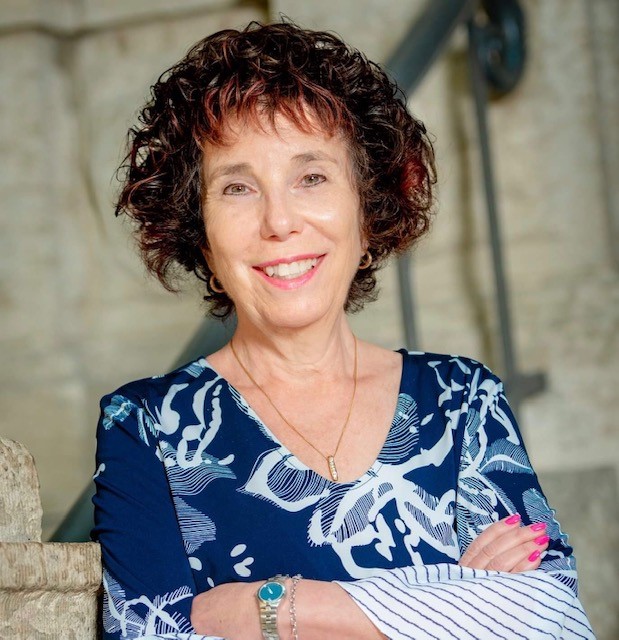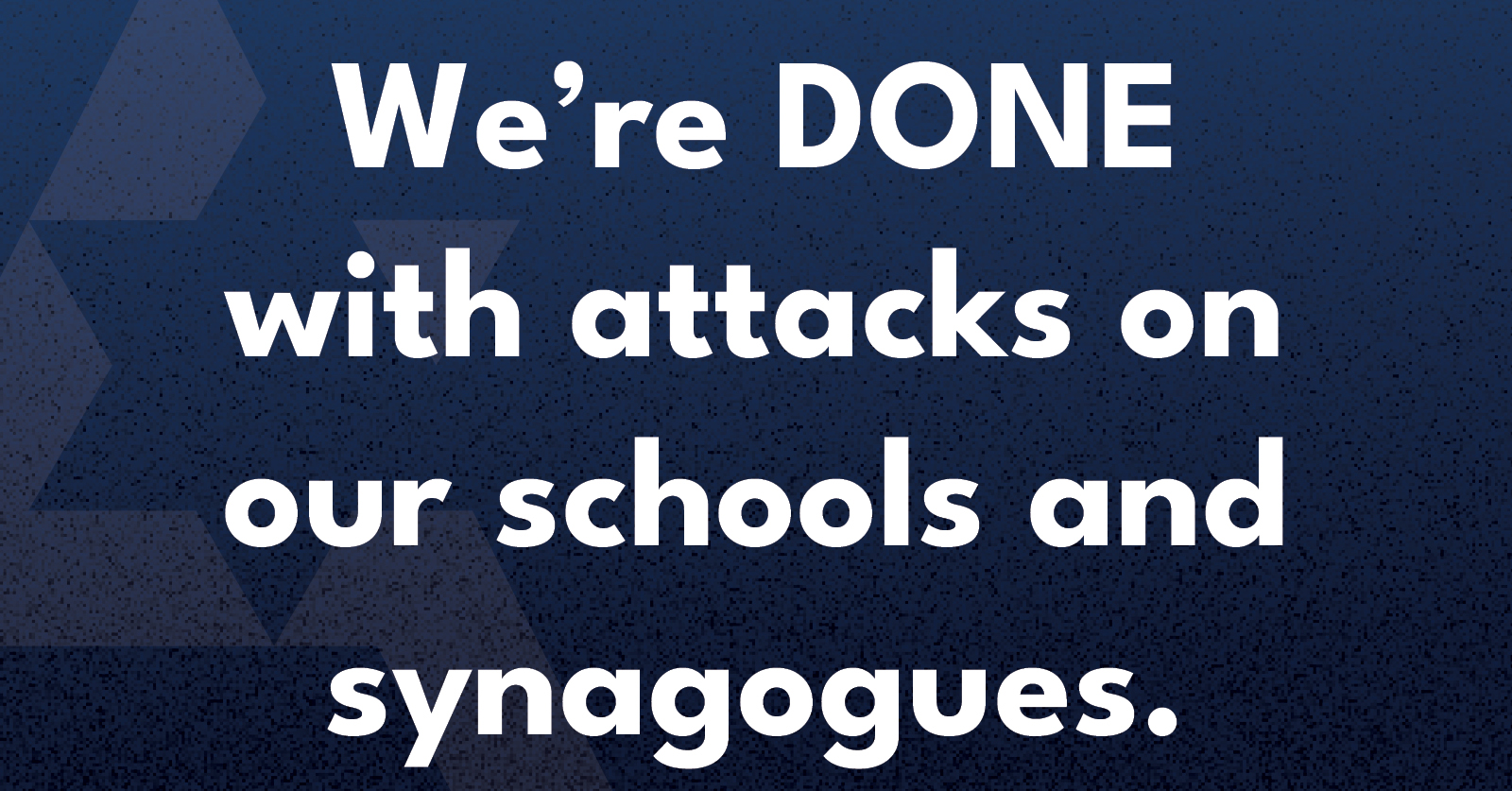Local News
Banner year for ‘the Beach’ day camp
 By SIMONE COHEN SCOTT Winnipeg Beach, Manitoba August 2nd, 2021 Winnipeg Beach Day Camp has come a long way. Around 1953 I was a counselor there, and if memory serves me, it had been founded only a year or two earlier.
By SIMONE COHEN SCOTT Winnipeg Beach, Manitoba August 2nd, 2021 Winnipeg Beach Day Camp has come a long way. Around 1953 I was a counselor there, and if memory serves me, it had been founded only a year or two earlier.
 Over the decades, having enrolled my kids, grand-kids, foster kids, and now a surprise grandchild, (no great-grandchildren yet) I have noted an evolution in style and attitude. Add to that the fact that this year appears to be a bumper year in enrolment (probably due to Covid 19’s lifting of various restrictions on kids playing together), it seems an appropriate time to focus attention on this staple of ‘the Beach’, (once but no longer known as ‘Jew Beach’, due to all other Lake Winnipeg resorts being restricted).
Over the decades, having enrolled my kids, grand-kids, foster kids, and now a surprise grandchild, (no great-grandchildren yet) I have noted an evolution in style and attitude. Add to that the fact that this year appears to be a bumper year in enrolment (probably due to Covid 19’s lifting of various restrictions on kids playing together), it seems an appropriate time to focus attention on this staple of ‘the Beach’, (once but no longer known as ‘Jew Beach’, due to all other Lake Winnipeg resorts being restricted).
I enrolled my granddaughter Katra, who lives in Vancouver, at the day camp for the full seven weeks. Delivering her each morning I soon noticed the rapid growth in attendance. Parking for drop offs became more challenging. The line-up for temperature checks and hand sanitation every morning grew ‘way beyond the roped off area. But once past that bottleneck, the kids, mask free, could dash, unhampered, into their designated spots under various trees. This year Katra is an ‘intermediate’, re-acquainting with last year’s friends, one from as far away as Toronto.
Jacqui Cohen is the Camp Director, and has been for the past two years. Immediately I was impressed with how efficiently she handled her position. She was the first line of greeting, checking in all the children, welcoming the new ones with comments of reassurance, and recognizing returnees with personalized remarks. A terrific people person I thought, as standing in line with Katra I observed her each morning, but as the weeks progressed and I saw the extent of the camp programming she was handling, intertwined with government regulations, both general and virus necessitated, my esteem soared. Sitting down with her the other day, at a picnic table screened from the rest of the camp by a clump of bushes, I got to know her better. For the past two years Jacqui has been at McGill, studying philosophy. Possibly due to the critical thinking and writing skills she gleaned from these courses, she realized that, for her temperament and life goals. she would be better served by becoming a teacher, and so come this fall, she’ll be taking Education at the University of Winnipeg. A career in teaching will bring her into line with her mother and grandmother, both teachers. (Jacqui’s mother is the ‘other’ Simone Cohen.) Days upon days filled with children is not daunting to Jacqui; her past experience includes four years of BB Camp at Lake of the Woods.
Whether or not day camps would be allowed this year was an up-in-the-air question until almost the last minute. I myself was apprehensive; how would I manage with a six-year old child if I couldn’t leave her somewhere for five hours every week-day? Meanwhile camp organizers were experiencing fluctuating proposed regulations: initially they expected to be able to enrol 25 children, this dropped to 10, then shrunk to none. Despite the uncertainty, management and staff for the camp, including its board, proceeded exactly as if it would be a ‘go’, and so it was. Their faith paid off: activities are well-planned; counselors are well-trained; systems are innovative and run smoothly.
 In total, 200 children are enrolled for the summer. Beginning the season with 15 participants, by week four there were 71 in attendance, the highest in years. Publicity outreach before the summer included Facebook, notification to schools, and distribution of brochures. Winnipeg Beach Day Camp is attracting participants from further away than the immediate area. Fifteen percent are from Gimli, many from elsewhere in the Interlake, even a few from Matlock. Registration requests included fundraising, as a new building was necessary this year, and projected additional facilities and equipment are in the works. Most donations were in the neighbourhood of $100, with several larger amounts. Appreciation for the camp translated into generosity. They are only a few thousand short of their goal of $15,000. Sale of lunch boxes, T shirts, and baseball caps, were introduced this year. Plans for next year include in person presentations in the schools, if things are back to normal.
In total, 200 children are enrolled for the summer. Beginning the season with 15 participants, by week four there were 71 in attendance, the highest in years. Publicity outreach before the summer included Facebook, notification to schools, and distribution of brochures. Winnipeg Beach Day Camp is attracting participants from further away than the immediate area. Fifteen percent are from Gimli, many from elsewhere in the Interlake, even a few from Matlock. Registration requests included fundraising, as a new building was necessary this year, and projected additional facilities and equipment are in the works. Most donations were in the neighbourhood of $100, with several larger amounts. Appreciation for the camp translated into generosity. They are only a few thousand short of their goal of $15,000. Sale of lunch boxes, T shirts, and baseball caps, were introduced this year. Plans for next year include in person presentations in the schools, if things are back to normal.
Speaking of fundraising, one of the best known features of the camp that has run for years (I can remember it from the ‘50s) is the Penny Carnival. The day of that coin is long gone, but the tradition is fixed; the name has stuck. Instead, for the past several years, strips of tickets have been sold. “Attendance this year was amazing,”says Jacqui. “There were always 100 people on the site.” (Covid restrictions allowed for 150.) This surge was due mostly to word of mouth – parents of course, but also past campers who summer at the Beach and its environs, and have made it an annual outing. Last year’s Covid restrictions prevented the event -the only cancellation ever.
Support from local merchants is strong. Pizza Fridays are a tradition, supplied at a special price by Pizza Place in the town. Between the special price to the camp and the still bargain cost to the campers, the small margin becomes part of the development budget, no doubt for equipment such as the bouncy castle sometimes featured. (Who knew there were such things as bouncy castles?) These last few years Pizza Place has had a vested interest; the owner’s 3 grandchildren participate for the full seven weeks. Until Covid 19, each midsummer Interlake Garden Centre invited the children to a ‘field trip’ at their greenhouses. There, they would be shown various plants and seeds and do a little planting of their own. This year an amended presentation was brought to the campsite, with flowers, pots, and potting soil, tying in with their end of season sale. Beyond participation from the local merchants, for the past five or six years on Ice Cream Day, Eva’s Gelato in Winnipeg has provided ice cream for sale at the camp. Generally, though, fundraising strategies are worked out together with the camp’s board of directors, which Jacqui commends as forming a “very strong team”.
There is a good rapport with the Town, which issues the permit for the camp, as well as with Provincial Parks, technically the locale, which is responsible for many features, for example the camp’s toilet facility. (Much of the Interlake region became a Provincial Park in 1969.) The camp, for its part, is very careful when planning extra events so that they not conflict with those
held in the area, such as Boardwalk Days. There is interaction, too, with Gimli, as occasionally the entire camp will locate for the day in the sprinkler spray park there. Other activities and special days include tie dye day, the Gimli Aquatic Park (before Covid), the bike parade (a tradition)…..and…..and…wait for it…Prairie Exotic…when a fellow brings around assorted creatures such as spiders, snakes, even a hedgehog. I’d skip that day but Jacqui assured me that kids who abhor these critters end up with at least respect for them. A new attraction planned for the near future will be paddle boards, funds permitting, and it seems they will.
Just as my talk with Jacqui was winding up, one of the counsellors, together with a camper, sought her out behind the privacy of the bushes. What transpired boosted even further my confidence in the competence of camp personnel. The student suffers from diabetes and that day could not regulate her system with the remedy she had with her. Jacqui immediately reached the mother on the ‘phone. The symptoms were described; the mother would bring insulin immediately after lunch. Should she eat her lunch, or any of her snacks? Yes, she could if she wanted. The smoothness with which all this was handled was impressive. Jacqui explained to me that as the camp’s intention was to include every child wishing to attend, the pre-opening training sessions readied the personnel for such eventualities. I asked her if she had had to scramble to find last minute counselors as enrollment soared. “No,” she replied, “we established a high ratio of staff to participants at the beginning and were always able to maintain that standard.”
Good job, people!
Local News
Cheryl Hirsch Katz, Jewish Child and Family Service’s longest serving staffer, set to retire at end of the month

By MYRON LOVE “I loved working at Jewish Child and Family Service,” says Cheryl Hirsh Katz, who is due to retire at the end of June. “I have always appreciated the warm and welcoming atmosphere here. I feel that the people working here are my extended family. I am going to miss my colleagues”.
“I have derived great satisfaction over the years to have been able to help many people in our community of all ages through my work at JCFS,” she continues.
After 44 years at the agency, Katz, the longest-serving member of the staff, was given an appreciative send-off at the JCFS’s recent (June 23) Annual General Meeting at the Shaarey Zedek Synagogue.
The daughter of Art and Bess Hirsh, Cheryl grew up in Garden City. She attended Peretz School, then Jefferson Junior High and Garden City Collegiate. She joined the staff of JCFS in 1981, shortly after receiving her Bachelor of Social Work degree.
She earned an MSW in 1990.
“I chose to become a social worker,” she recalls, “because I always wanted to be able to help people.”
Katz was originally hired by JCFS to work with newcomers. After a couple of years, she was given responsibility for looking after the needs of older adults.
“I really enjoyed working in older adult services,” she says. “That is where I spent the bulk of my time at JCFS.”
After ten years as a case worker, she was promoted to a supervisory role. Later, she was also given responsibility for mental health and addictions programming and settlement services, while keeping the older adult files under her purview.
“As a supervisor, I wasn’t directly involved with individual clients,” she points out. “I was more involved with programming. Among the programs for seniors we organized were – for example – sessions on elder abuse, digital storytelling and memory loss.”
She notes that one of the trends she has seen over the last 44 years is that people are living longer and living in their homes longer. A lot more of our clients are living well into their 90s,” she observes. “We have had to continually expand our staff and the services we provide in order to accommodate the growing demands of an aging population.”
She also spoke of the mental health needs of seniors and aging Holocaust survivors.
She says that she has mixed feelings about leaving JCFS. “After so many years working full time, I am going to have to create a new routine,” she comments.
She notes that, now that she is retired, she will have more time to spend with her parents – who are in their 90s.
And then, there are the two dogs to look after. “I will have time now to try new activities,” she says. “ I might learn to play mah-jong.”
She speaks about maybe doing some traveling – although her husband, Murray, is still working full time.
(She and Murray have one daughter, Farah.)
“Retirement may also include some volunteering,” she adds.
It is quite likely, she will be continuing her association with JCFS but in a volunteer capacity.
Local News
Gray Academy students shine in provincial, national debating competitions

By MYRON LOVE It has been another good year for Gray Academy’s high school students who participated in provincial and national debating competitions. The best results were recorded by Grade 9 student Noa Mednikov, who finished fourth overall nationally, fourth in interpretive reading, and fifth in persuasive speaking at the junior National Public Speaking Championship in early May in Vancouver.
Last October, in the Junior Provincial British Parliamentary Championship – which was held at St. John’s-Ravenscourt – Noa and her partner, Raya Braunstein, finished third as a team while Raya placed third in individual debating.
Their fellow Grade 9 student Maxim Moscalenkov tied for first in persuasive speaking in Vancouver, while the Gray Academy team of Gabe Tapper and Aaron Koplovich finished fifth. Aaron also finished fifth in his individual debate.
Earlier, in March, Maxim finished fifth in the Provincial Juniors debating competition, which was held at Balmoral Hall He and his debate partner, Nate Shenkarow, finished seventh among the teams entered. Last November, he and partner, Ethan Tenenbein, finished seventh in the Junior Prepared Tournament – just behind the Gray Academy team of Nate Shenkarow and Jack Kay.
At the senior high level in that competition, the team of Jacob Tenenbein and Jonah Novoseller finished fourth and Jacob was recognized as fifth best in an individual capacity. Jonah and Jacob also paired up to win the Asper Cup, which was held at their home school.
Jacob represented Manitoba at the Junior National Speech Championship in Vancouver in May and, last October, he and Grade 12 Gray Academy students Julie Krozkin and Daniel Bokser represented Canada at an international debating tournament in Bermuda.
Gray Academy’s debating program was introduced by Linda Martin in 2003. She also led the debating teams at Balmoral Hall. In 2011, Martin was succeeded by Gray Academy high school English teacher Andrew Kaplan.
“Andrew has done a wonderful job with the debating program” says Martin, who has a debating trophy at Gray Academy named in her honour, as well as a provincial trophy for best individual junior debater. “Over the years, Gray Academy students have done very well in many local, national and international competitions,” she adds.
About three weeks ago, this writer had the opportunity to sit down with Andrew Kaplan and six of the school’s top debaters while they discussed the benefits of learning how to debate. According to Noah Strauss – who competed in the Junior Provincials at Balmoral Hall in March, public speaking leaves him with a feeling of accomplishment.
“It’s a good skill set to have,” he observes. “It builds confidence.”
“A benefit of being able to debate is that you learn how to convince people that you know what you are talking about,” adds Maxim Moscolenkov.
Raya Braunstein notes that being able to debate is a skill that she expects to be helpful in many university courses which she may choose to take.
As Andrew Kaplan notes, the ability to express yourself has a great impact in whatever career you choose to pursue.
He points out that debating is compulsory at Gray Academy for all Grade 7 and 8 students – and students can continue debating as an option in the higher grades
Of course, competitive debating is not for everyone. For those students who opt to take that path, the journey begins with internal school debate competition – with the top debating teams and individuals qualifying for local tournaments and – potentially – beyond.
Andrew Kaplan reports that a small number of high schools in Winnipeg and southern Manitoba have active debating programs – including St. Johns Ravenscourt, St. Paul’s High School, St. Mary’s Academy, Garden City and Maples Collegiates in the Seven Oaks School Division, St. Maurice (a Catholic School), as well as Morden Collegiate and Dasmesh, a Sikh private school.
Kaplan expresses his appreciation to the Asper Foundation and an endowment spearheaded by the Kives Family for providing funding for the Gray Academy debating program – as well as the Andrew Slough Foundation – which was established by his friends in memory of the outstanding former Ravenscourt student debater and lawyer who passed away suddenly two years ago at the still young age of 38.
I am confident that our Jewish community can look forward to the continued success of Gray Academy’s star debaters and to the continual emergence of future stars as the times goes by.
Local News
Antisemitism has crept into grade school in Canada

Antisemitism in Canada has moved beyond protests and politics; it is now entering classrooms and altering how Jewish children see themselves functioning within them.
A a university student I have observed the experience of my younger brother in grade eight as a Jewish student. Over the past few months, his school has been at the center of several deeply troubling incidents that have made him feel unsafe in our parks, community, and even his school. Swastikas were drawn around the community, in parks and ponds. Additionally, an older man, who claims to be a pro-Palestinian influencer, stood outside his predominantly Jewish school wearing a keffiyeh, filming a video which then circulated between students on TikTok.
This same man later showed up to our local Jewish community center in keffiyeh to allegedly watch his son play basketball where my brother and many of his classmates go for their lessons, basketball games, and Jewish events. These moments made him and his peers feel watched and targeted just for being Jewish. Local political representatives condemned the incidents and raised awareness about antisemitism, but the fear among students didn’t go away. The feeling of being targeted for simply existing has been taught to my brother, something my parents had tried their hardest to escape from.
Most recently, my brother was chosen to represent his school at a regional science fair. When one of the judges arrived wearing a keffiyeh, he froze. For many, including my brother after the incidents he has faced, the keffiyeh represents a political message. But even more so for my younger brother, it is tied to the fear and intimidation he had already experienced. He felt nervous, distracted, and unsure of how to act.
This is not about silencing political expression. It is about a child who came to share his ideas and left feeling uncertain and afraid. It is about the atmosphere forming in Canadian schools, where Jewish students are being made to feel targeted and unwelcome.
His school made an effort to address the incidents, but the impact is lasting. Posts on social media, much can be very vague at times about inclusion cannot fully undo the feeling of being singled out. A kind word from a teacher does not erase the fear that builds when threats are left unspoken but deeply felt.
I am writing this as a sister who watched her younger brother lose a moment that should have been filled with confidence and pride. He deserved to feel safe. So do all Jewish students in this country.
Moving forward, schools must take concrete steps to protect all students. Antisemitism cannot only be addressed when it becomes violent or overt. It must also be recognized when it appears as intimidation, symbolic targeting, or political messaging that creates fear among students. Children should never have to question whether they are safe in their own classrooms or community spaces.
Events that are meant to support and celebrate students must remain focused on them. Individuals who feel the need to bring political symbols or messages into school grounds or children’s events should not be welcomed in those spaces. Schools must make it clear that their environments exist to support learning, safety, and inclusion, not to host agendas that can intimidate or isolate students.
Administrators and educators must develop clear guidelines for identifying and responding to antisemitic behavior in all its forms. This includes strengthening security measures, offering ongoing staff training, and engaging directly with Jewish families to understand their concerns. Inclusion is not a one-time statement. It is a responsibility that must be reflected in everyday decisions and actions. No child should ever feel unsafe or unwelcome because of their identity.
The author is a Campus Media Fellow with HonestReporting Canada and Allied Voices for Israel who lives in Toronto.
